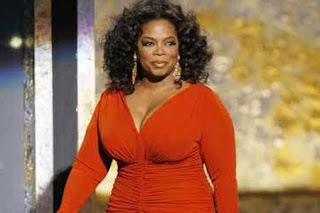One way I do not do so well keeping in step with especially my Mennonite brothers and sisters is the whole counter-cultural thing. Theologically I totally get it and even uphold it to an extent. The notion that we are citizens of another kingdom, an eternal kingdom with no end, ruled by principles and ideas not-of-this-world. The whole 'aliens passing through' thing.
On the other hand, I reject this...at least I think I do.
Practically speaking, pop-culture fascinates me. Trends, celebrity, fandom, music, film, fashion—I find all of it intriguing and worth celebrating from an artistic vantage, definitely worth noting from a philosophical one.
So I find myself
Anyway, Lofton begins that for Oprah there is a symphonic way that consumption and religion are not in opposition to one another but in collaboration. She notes that in the past, American religious scholars have sought to untangle these ideas revealing their own ideas of what's sacred vs. profane. She gives us three principles for religion and culture:
1) religion in pop-culture. The crucifix in a pop music video.
2) pop culture in religion. The use of blogs by believers.
3) pop culture as religion. Fandom.
This is why Madonna was so offensive in the '80's (religion in pop culture) and mega-church malls were so annoying in the '90's (pop culture in religion), Lofton expains. The former is profane, the latter, crass commercialization of the sacred.
 |
| Like a Virgin |
 |
| Willow Creek: my favorite megachurch |
This is the part I underlined: If only we didn't imagine culture and religion as neatly divided, we may be less surprised by their ceaseless commingling. There have, as it turns out, always been pigeon sellers, in every temple.
 |
| Icon B |
 |
| Icon A |
I don't think the pigeon sellers in the temple bit is a copout. I constantly hear conservatives misquoting John's Jesus, "the poor will always be among you," in an effort to ignore the poor's plight—certainly not Lofton's point. This pigeon reference is not about ignoring the capitalistic ventures to continue engaging in consumeristic behaviors under the guise of generous gift-giving (ala Oprah), but instead, a finger pointing to the reality that the lines between American religion (especially Protestantism) and (pop)cultural memes are blurry at best. (If Niebuhr could have admitted this a half-century ago would contemporary Christians embrace culture differently today?)
And yet, neither does this merger, or blurring, or commingled reality of culture and religion (or whatever you want to label it) excuse those of us who seek value and meaning outside of American consumer culture, those of us who seek fandom in areas outside of pop culture but who also do not forbid pop culture (point #3, culture as religion). As a thirty-something, white, American, female, who rejects the promises of the American dream and who upholds the promise of the Beatitudes, how do I situate myself (and my parenting for that matter) in a way that neither over-values the accumulation of shit (i.e. material goods that pass away) nor under-values the call to be other-worldly, placing one's hope and esteem in a transcendent reality that stretches beyond the cosmos (figuratively speaking of course)? How do I do this?
Is it enough to reject Oprah's and TD Jakes' prosperity gospel?
Is it enough that I still use the first generation iPad (even though I also have an iPod, iPhone, Macbook Pro, and an old cracked-LCD Macbook)?
Is it enough when planning worship or imagining a new liturgical ritual that might appeal to the millennial generation that it embraces social justice concerns like not using an American mega-bank for our checking and savings accounts?
Don't answer. In my questioning I want to embrace the ambiguity. And realize further that the non-ubiquitous characteristics that I named at the start (the other core tenants of anabaptist belief) certainly supplement my efforts, or the efforts of the faith community, to live in culture, embrace culture, and push against culture when it needs redirecting. Right? Oprah's product is a practice, and her practice is her product. This is simplistic, bad theology. I will not be self-transformed by Oprah's or America's or Dr. Phil's or Nate Berkus' or Suzie Orman's product, but by the renewing of my mind (when I'm wearing my new dress from Anthropologie--kidding).
There will be more from me on this...I'm only through the first three chapters of Lofton and Oprah.
No comments:
Post a Comment